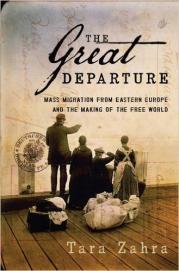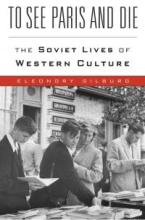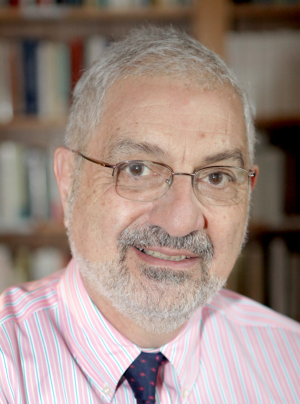
Columbia University, PhD '68
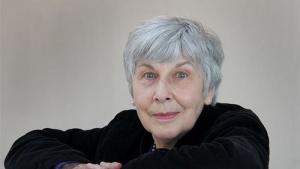
Oxford University, DPhil '69
Recent Research / Recent Publications
-
Mischka's War: A European Odyssey of the 1940s. Melbourne University Press, 2017.
-
A Spy in the Archives: A Memoir of Cold War Russia. Melbourne University Press, 2013.
-
My Father's Daughter. Melbourne University Press, 2010 (Australian Historical Association's Magarey Medal for Biography)
-
Tear off the Masks! Identity and Imposture in Twentieth-Century Russia. Princeton University Press, 2005.
-
(ed.). Stalinism: New Directions. New York: Routledge, 2000.
-
(ed. with Yuri Slezkine). In the Shadow of Revolution: Life Stories of Russian Women from 1917 to the Second World War. Princeton, NJ: Princeton University Press, 2000.
-
Everyday Stalinism: Ordinary Life in Extraordinary Times: Soviet Russia in the 1930s. Oxford: Oxford University Press, 1999.
-
(ed. with Robert Gellately). Accusatory Practices: Denunciation in Modern European History, 1789–1989. Chicago: University of Chicago Press, 1997.
-
Stalin's Peasants: Resistance and Survival in the Russian Village after Collectivization. Oxford: Oxford University Press, 1994.
-
The Cultural Front. Power and Culture in Revolutionary Russia. Ithaca: NY: Cornell University Press, 1992.
-
The Russian Revolution. Oxford: Oxford University Press, 1st ed., 1982/3; 2nd revised ed. 1994; 3rd (revised) ed. 2007.
-
Education and Social Mobility in the Soviet Union, 1921–1932. Cambridge: Cambridge University Press, 1979.
-
(ed.). Cultural Revolution in Russia, 1928–1931. Bloomington: Indiana University Press, 1978.
-
The Commissariat of Enlightenment. Soviet Organization of Education and the Arts under Lunacharsky, 1917–1921. Oxford: Oxford University Press, 1970.
-
"The Soviet Union in the 21st Century." Journal of European Studies 37, no. 1 (2007).
-
"Social Parasites: How Tramps, Idle Youth, and Busy Entrepreneurs Impeded the Soviet March to Communism." Cahiers du monde russe et soviétique 47, no. 1–2 (2006).
-
"Happiness and Toska: A Study of Emotions in 1930s Russia." Australian Journal of Politics and History 50, no. 3 (2004).
-
"Politics as Practice: Thoughts on a New Soviet Political History." Kritika 5, no. 1 (2004).
-
"Vengeance and Ressentiment in the Russian Revolution." French Historical Studies 24, no. 4 (2001).
-
Reviews Red at Heart in the NYRB
-
Reviews What You Did Not Tell for the Nation
-
Discusses her latest book, Mischka's War, with the Manchester Guardian
-
Participates in Neubauer Collegium research project on the Russian Revolution
-
Reviews 5 Books on Lenin for Harper's Magazine

University of Michigan, PhD '05
BIOGRAPHY
Tara Zahra's research focuses on the transnational history of modern Europe, migration, the family, nationalism, and humanitarianism. Her latest book, Against the World: Anti-Globalism and Mass Politics Between the World Wars will be published by W.W. Norton Press in 2023. With Pieter Judson, she is currently working on a history of the First World War in the Habsburg Empire. Zahra is also the author of The Great Departure: Mass Migration and the Making of the Free World (Norton, 2016) and, with Leora Auslander, Objects of War: The Material Culture of Conflict and Displacement (Cornell, 2018). Her previous books include The Lost Children: Reconstructing Europe's Families after World War II (Harvard, 2011) and Kidnapped Souls: National Indifference and the Battle for Children in the Bohemian Lands (Cornell, 2008).
Graduate Advising
I welcome applications from graduate students interested in Central European history (including Habsburg, East European, and German history) in the nineteenth and twentieth centuries, as well as European international history and transnational history. Some of my current and former PhD students have worked on the history of gender and sexuality in late Imperial Vienna; migration and the family in postwar West Germany; the body in late Socialist Czechoslovakia; Jewish culture in postwar Czechoslovakia and Poland, Roma in postwar Hungary; colonialism and empire in Poland and Germany; and masculinity and coal mining in Socialist Czechoslovakia.
Recent Course Offerings
Undergraduate
-
Writing Family History (junior colloquium)
-
Human Rights in World Civilization
-
Twentieth-Century Europe
-
History of Human Rights (in Vienna)
-
East Central Europe in the Twentieth Century
-
Nazism (junior colloquium)
-
European Civilization I & II
-
Gender & Sexuality in World Civilization
-
Migration and Displacement in Twentieth-Century Europe
Graduate
-
History and Anthropology of the Present (with Susan Gal)
-
Seminar: Globalization and Its Discontents (with Jon Levy)
-
Transnational Europe: Twentieth Century
-
Nations & Empires (with Susan Gal)
-
Nationalism in East Central Europe
-
Unsettled Europe: Migration and Displacement in Modern Europe
-
Gender and Sexuality in Modern Europe (with Leora Auslander)
-
Historiography (with Emily Osborn)
-
Migration and Material Culture in Modern Europe (with Leora Auslander)
University and Departmental Service
-
Roman Family Director, Neubauer Collegium for Culture and Society
-
Faculty Sponsor of Transnational Approaches to Modern Europe Workshop
-
Executive Board, Center for Russian, East European, and Eurasian Studies
-
Faculty Affiliate, Center for Study of Gender and Sexuality
-
Editorial Board, Past & Present
Recent Research / Recent Publications
Against the World: Anti-Globalism and Mass Politics Between the World Wars. New York: W.W. Norton, 2023.
Coauthored with Pieter Judson, The Great War and the Transformation of Habsburg Central Europe. Oxford & New York: Oxford University Press, in progress.
Coauthored with Leora Auslander. Objects of War: The Material Culture of Conflict and Displacement. Ithaca, NY: Cornell University Press, 2018.
The Great Departure: Mass Migration from Eastern Europe and the Making of the Free World. New York: W.W. Norton, 2016.
-
Review by Benjamin Cunningham in the Los Angeles Review of Books (May 24, 2016)
-
Review by The Economist (April 30, 2016)
-
Interview with Adam Morgan for the Chicago Review of Books (April 7, 2016)
-
Review by Julie M. Klein in the Chicago Tribune (March 17, 2016)
The Lost Children: Reconstructing Europe's Families after World War II. Cambridge, MA: Harvard University Press, 2011.
-
George Louis Beer Prize, American Historical Association, 2012
-
Radomir Luza Prize, Austrian Cultural Forum, 2012
Kidnapped Souls: National Indifference and the Battle for Children in the Bohemian Lands, 1900–1948. Ithaca, NY: Cornell University Press, 2008; paperback, 2011.
-
Book Prize, Czechoslovak Studies Association, 2009
-
Barbara Jelavich Book Prize, American Association for the Advancement of Slavic Studies, 2009
-
Hans Rosenberg Book Prize, Conference Group for Central European History, 2009.
-
Book Prize, Austrian Cultural Forum, 2008-2009
-
Laura Shannon Prize, Nanovic Institute, 2008–2009
-
“Migration, Mobility, and the Making of a Global Europe,” Contemporary European History 31 (February 2022), 142-54.
-
“Against the World: The Collapse of Empire and the Deglobalization of Interwar Austria,” Austrian History Yearbook 52 (2021)
-
“Fin d’empire et genre de la déglobalisation,” Clio. Femmes, genre, histoire 53, 2021.
-
"'Condemned to Rootlessness and Unable to Budge': Roma, Migration Panics, and Internment in the Habsburg Empire." American Historical Review 122, no. 3 (Jun. 2017).
-
"Europe's Shifting Borders." Foreign Affairs (Feb. 11, 2017).
-
"Travel Agents on Trial: Policing Mobility in Late Imperial Austria." Past & Present 223 (May 2014): 161–93.
-
"Forum: Habsburg History." German History 31 (Jun. 2013): 225–38.
-
With Pieter M. Judson. "Introduction." Austrian History Yearbook 43 (2012): 21–27.
-
[Papers from the May 2008 symposium, "Indiference to Nation in Habsburg Central Europe."]
-
"Going West." East European Politics and Societies 25 (Nov. 2011): 785–91.
-
"'The Psychological Marshall Plan': Displacement, Gender, and Human Rights after World War II." Central European History 44 (Mar. 2011): 37–62.
-
"Enfants et purification ethnique dans la Tchécoslovaquie d'après-guerre." Annales. Histoire, Sciences Sociales 66 (Apr.–Jun. 2011).
-
"'A Human Treasure': Europe's Displaced Children Between Nationalism and Internationalism." Postwar Reconstruction in Europe: International Perspectives 1945–1949 Past & Present Supplement 6 (2011): 210.
-
"Imagined Non-Communities: National Indifference as a Category of Analysis." Slavic Review 69 (Spr. 2010): 93–119.
-
"'Prisoners of the Postwar': Expellees, Refugees, and Jews in Postwar Austria." Austrian History Yearbook 41 (2010): 191–215.
-
"Lost Children: Displacement, Family, and Nation in Postwar Europe." Journal of Modern History 81 (Mar. 2009), 45–86.
-
"The Minority Problem: National Classification in the French and Czechoslovak Borderlands." Contemporary European History 17 (May 2008): 137–165.
-
"'Each Nation Only Cares for Its Own': Empire, Nation, and Child Welfare Activism in the Bohemian Lands, 1900–1918." American Historical Review 111 (Dec. 2006): 1378–1402.
-
"Looking East: East Central European 'Borderlands' in German History and Historiography." History Compass 3, no. 1 (2005): 1–23.
-
"Reclaiming Children for the Nation: Germanization, National Ascription, and Democracy in the Bohemian Lands, 1900–1945." Central European History 37 (Dec. 2004): 499–541.
-
Reviews of Against the World: Anti-Globalism and Mass Politics Between the World Wars in The New York Times and The Wall Street Journal.
-
Receives Guggenheim Fellowship (2021)
-
Delivers the Center for Austrian Studies' 36th Annual Kann Memorial Lecture (2020)
-
"The Ugly U.S. History of Separating Famiies Goes Back Way Beyond Trump" in the Daily Beast
-
Elected to the American Academy of Arts & Sciences
-
Discusses "Europe's Shifting Borders" in Foreign Affairs
-
Reviews of The Great Departure in the Chicago Tribune, the Economist, and the Los Angeles Review of Books
-
Publishes The Great Departure: Mass Migration from Eastern Europe and the Making of the Free World (Norton, 2016)
-
Writes an opinion piece, "America, the Not So Promised Land," for the New York Times
-
Coorganizes "People & Things on the Move" conference, Neubauer Collegium
-
Coorganizes "Human Trafficking, Labor Migration, and Migration Control in Comparative Historical Perspective" conference, Pozen Family Center for Human Rights
-
Awarded 2014 MacArthur Fellowship
-
Discusses "Humanitarianism and Displaced Children in Twentieth-Century Europe" [video, 66 minutes]
-
Delivers lecture at Shannon Prize Award ceremony [video, 85 minutes]
-
Writes on topics related to The Lost Children:Reconstructing Europe’s Families After World War II on The Nation

Yale University, PhD '09
BIOGRAPHY
I am an historian of modern Russia, with a special interest in nineteenth- and twentieth-century politics, culture, and ideas. My work explores how Russia's peculiar political institutions—and its status as a multiethnic empire—shaped public opinion and political cultures. It also interrogates Russia's relationship with the outside world, asking where the Russian experience belongs in the broader context of European and global history. In addition, I am interested in the theory and practice of the digital humanities.
My most recent book, Utopia’s Discontents: Russian Exiles and the Quest for Freedom, 1830–1930, was published by Oxford University Press in 2021. It is the recipient of the 2022 Wayne S. Vucinich Book Prize from ASEEES, which recognizes the most important contribution in any discipline of Slavic studies. The book provides the first synthetic account of Europe's "Russian colonies"—boisterous and politically fractious communities formed by exiles from the Russian empire that emerged across the continent in the nineteenth and early twentieth centuries. The book treats the "Russian colonies" as utopian communities in which radical activists worked to transform social relations and individual behavior, and it explores how these unique spaces influenced Russian political imaginaries as well as the culture of their host societies. Ultimately, the project offers a bold reassessment of Russia's relationship with Europe, the origins of the Russian revolution, and the creation of the Bolshevik regime.
My first book, Children of Rus’: Right-Bank Ukraine and the Invention of a Russian Nation, was published by Cornell University Press in 2013 and released in paperback in 2017. Children of Rus' argues that it was on the extreme periphery of the tsarist empire—a region that today is located at the very center of the independent nation of Ukraine—that Russian nationalism first took shape and assumed its most potent form. The book reconstructs how nineteenth-century provincial intellectuals came to see local folk customs as the purest manifestation of an ancient nation that unified all the Orthodox East Slavs, and how they successfully propagated their ideas across the empire through lobbying and mass political mobilization. In addition, it reconceptualizes state-society relations under tsarism, showing how residents of a diverse and contested peripheral region managed to shape political ideas and identities across Russia—and even beyond its borders. Children of Rus' was named a Choice Outstanding Academic Title for 2013.
I am currently working on a new history of the origins of the Protocols of the Elders of Zion written for a popular audience. This book offers a new account of how this notorious text came to be, and it asks what history's greatest conspiracy theory can tell us about the present moment, when conspiratorial thinking is again on the rise in society and politics.
My current research is enriched by technology, and I am interested in thinking through how historians can use digital tools to open new avenues for exploration and to communicate their findings to other scholars and the general public. I am particularly interested in using geo-spatial analysis to analyze flows of people, ideas, and commodities over time and across space. For examples of my (ongoing) work in digital cartography, see my Utopia's Discontents website in development and my study of émigré publications.
I have held research fellowships at Columbia, Harvard, and the Cullman Center for Scholars and Writers at the New York Public Library. My research has been funded by ACLS, IREX, Fulbright-Hays, and the NEH.
I am represented by Kathleen Anderson (kathleen@andersonliterary.com) of Anderson Literary Management.
Recent Research / Recent Publications
-
Utopia’s Discontents: Russian Émigrés and the Quest for Freedom, 1830s-1930s, Oxford University Press, 2021. Awarded the 2022 Wayne S. Vucinich Prize.
-
"'The Franco-Russian Marseillaise': International Exchange and the Making of Anti-Liberal Politics in Fin-de-Siècle France." Journal of Modern History 89, no. 1 (Mar. 2017): 39–78.
-
"Children of Rus’: Nationalist Imaginations in Right-Bank Ukraine." In The Future of the Past: New Perspectives in Ukrainian History, edited by Serhii Plokhy. Cambridge, MA: Harvard University Press, 2016.
-
"Making and Breaking the Russian Empire: The Case of Kiev’s Shul’gin Family." In Imperiale Biographien: Elitekarrieren im Habsburger, Russischen und Osmanischen Vielvölkerreich (1850–1918), edited by Malte Rolf and Tim Buchen, 178–98. Munich: Oldenbourg-Verlag, 2015.
-
"Intimacy and Antipathy: Russian-Ukrainian Relations in Historical Perspective." Kritika 16, no. 1 (Win. 2015): 121–28.
-
Children of Rus': Right-Bank Ukraine and the Invention of a Russian Nation. Ithaca, NY: Cornell University Press, 2013.
-
"Modernist Visions and Political Conflict in Late Imperial Kiev." In Races to Modernity: Metropolitan Aspirations in Eastern Europe, 1890–1940, edited by Jan C. Behrends and Martin Kolrausch. New York: Central European Press, 2014.
-
"Ukrainophile Activism and Imperial Governance in Russia's Southwestern Borderlands." Kritika 13, no. 2 (Spr. 2012): 301–26.
-
"Migration, Mobility, and Political Conflict in Late Imperial Kiev." In Russia on the Move: Essays on the Politics, Society and Culture of Human Mobility, 1850–Present, edited by John Randolph and Eugene Avrutin. Urbana: University of Illinois Press, Studies of World Migrations Series, 2011.
-
Writes op-ed on seizing Russian oligarchs' wealth for The Atlantic
-
Interviewed for Meduza on Putin's presentation of Ukrainian and Soviet history
-
Quoted in USA Today article on how historians see the invasion of Ukraine
-
Quoted in Politifact on the history of Russian imperialism
-
Interviewed for The World on the entangled histories of Russia and Ukraine
-
Writes op-ed on immigration for The Washington Post
-
Quoted in Chicago Tribune article on the meaning of "concentration camp"
-
Named a 2018–19 Cullman Center Fellow at the New York Public Library
-
Review of AHA session on "History and Historians in the Ukraine Crisis" by Sarah Fenton
-
Quoted in National Geographic article on Ukrainian-Russian conflict
-
Children of Rus' reviewed in the Moscow Times
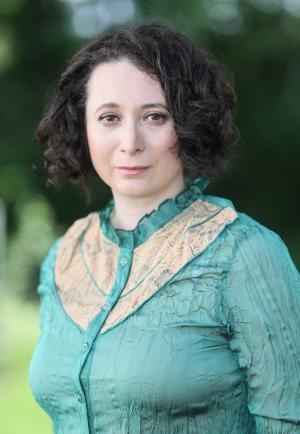
University of California, Berkeley, PhD '10
BIOGRAPHY
I specialize in the history of modern Russia and the Soviet Union, with a particular interest in Soviet culture, society, and their international context. Currently, I am at work on two book projects.
The first, Weary Sun, explores the history of tango, its creators and audiences, in Stalinist Russia and Eastern Europe. Soviet tango was made in Riga and Warsaw. Struck by the connections and exchanges between Soviet and émigré cultures, I focus on the largely unexamined Russian-speaking communities at the borders of the Soviet Union. Tango occupied a central place in the Soviet aural world, yet it fits uncomfortably in the dominant narratives and thus calls for a rethinking of Stalinist culture. This research reconstructs the sounds of Soviet courtyards, communal apartments, southern resorts, movie theaters, and parks of "rest and culture," where people encountered the tango most frequently. I seek to explain tango’s aesthetic and ideological work among other representations of socialist paradise.
Another project, The Entangled Histories of Soviet Newspeak and the Russian Language in the Twentieth Century, describes the rise and fall of Soviet newspeak as a language intricately bound to the daily uses and reforms of Russian itself. I see the Russian language as a field for defining social status and cultural authority in a post-revolutionary world. Multiple players were active in this field, including ordinary speakers of Russian and writers who experimented with the vernacular.
My first book, To See Paris and Die: The Soviet Lives of Western Culture (Harvard, 2018), is a history of the Soviet opening to the West during the 1950s and 1960s. The book investigates why and how Western cultural imports arrived in the Soviet Union on an unprecedented scale, as well as what meanings they acquired for Soviet audiences. To See Paris and Die brings together the ideas that justified cultural exchange and the diplomatic negotiations that made it possible, the secrets of museum storage rooms and the publicity of radio broadcasts, lavish international film festivals and backwater countryside screenings, enormous print runs and home-made books, state-sponsored travel and emigration. Analyzing how the Soviets received Western novels, paintings, and films, the book takes translation as its central theme — a mechanism of cultural transfer, a method of habituation of foreign imports, and a metaphor for transnational interactions. When they first appeared en masse, Western imports were extraordinary, but in the process of cross-cultural transfer that began in the mid-1950s, the foreign became quotidian—an indiscernible part of late Soviet culture and daily life.
My research has been supported by the National Endowment for the Humanities, the Kennan Institute, the American Philosophical Society, the National Council for Eurasian and East European Research, the Social Science Research Council, American Councils for International Education, the Mabelle McLeod Lewis Foundation, and the Fulbright-Hays program, among others.
Recent Research / Recent Publications
To See Paris and Die: The Soviet Lives of Western Culture. Cambridge, MA: Harvard University Press, 2018.
-
Best Book in Cultural Studies Prize, American Association of Teachers of Slavic and East European Languages, 2019
-
Laura Shannon Prize in Contemporary European Studies, Nanovic Institute, University of Notre Dame, 2020
-
Wayne S. Vucinich Book Prize, Association for Slavic, East European, and Eurasian Studies, 2019
-
Marshall D. Shulman Book Prize, Association for Slavic, East European, and Eurasian Studies, 2019
-
Honorable Mention, Aldo and Jeanne Scaglione Prize for Studies in Slavic Languages and Literatures, Modern Language Association, 2019
-
Shortlist, Council for European Studies Book Award, 2020
-
Shortlist, Best First Book Prize, American Association of Teachers of Slavic and East European Languages, 2019
-
Shortlist, Pushkin House Russian Book Prize, Pushkin House, London, 2019
The Thaw: Soviet Society and Culture during the 1950s and 1960s, edited by Denis Kozlov and Eleonory Gilburd. Toronto: University of Toronto Press, 2013.
-
"Seminal Years and the Long Arc of the Moral Universe [review essay]." Kritika: Explorations in Russian and Eurasian History 20, no. 3 (Summer 2019), 613-626.
-
"The Thaw as an Event in Russian History [coauthored with Denis Kozlov]." In The Thaw: Soviet Society and Culture during the 1950s and 1960s, edited by Denis Kozlov and Eleonory Gilburd, 18–81. Toronto: University of Toronto Press, 2013.
-
"The Revival of Soviet Internationalism in the 1950s." In The Thaw: Soviet Society and Culture during the 1950s and 1960s, edited by Denis Kozlov and Eleonory Gilburd, 262–401. Toronto: University of Toronto Press, 2013.
-
"Picasso in Thaw Culture." Cahiers du monde russe 47, no. 1–2 (Jan.–July 2006): 65–108
-
"Books and Borders: Sergei Obraztsov and Soviet Travels to London in the 1950s." In Turizm: The Russian and East European Tourist Under Capitalism and Socialism, edited by Anne Gorsuch and Diane Koenker, 227–47. Ithaca and London: Cornell University Press, 2006.
Published To See Paris and Die: The Soviet Lives of Western Culture (Harvard, 2018)
-
Wins ASEEES's Wayne S. Vucinich Book Prize and Marshall Shulman Book Prize
-
Rachel Polonsky, "When the Soviets Shimmied," New York Review of Books, Aug. 15, 2019.
-
Michele A. Berdy, "Gilburd Reveals Second Lives Behind the Iron Curtain," Moscow Times, May 25, 2019.
-
Jennifer Wilson, "How to Think Freely," New Republic, May 9, 2019.
-
Pushkin House 2019 Russian Book Prize (shortlist)
-
Harry Robertson, Book Review, Financial Times, Dec. 14, 2018.
-
Interview with Anna Chernyakhovskaya, Higher School of Economics, National Research University, Moscow, Apr. 4, 2018.
-
Interview with Alexander Kan, BBC Russian Service, June 8, 2019

